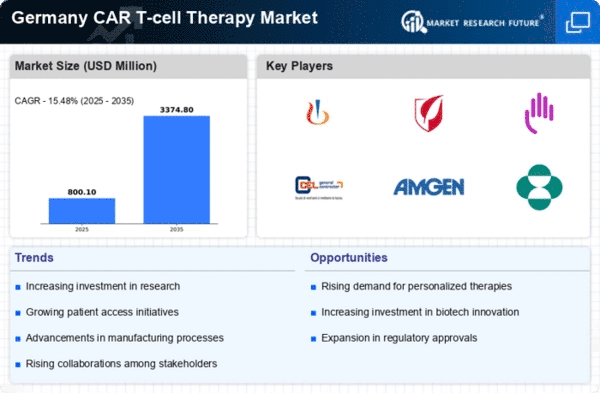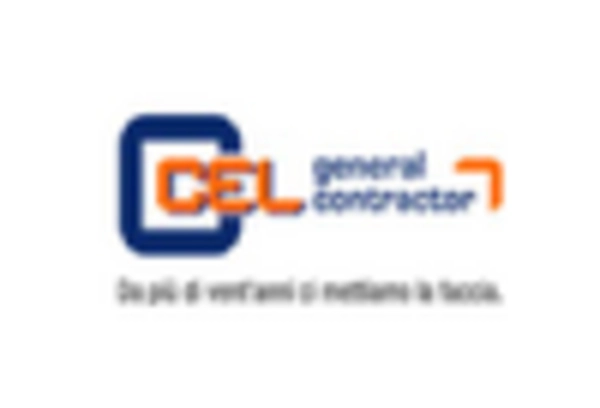Regulatory Framework Enhancements
The regulatory framework surrounding CAR T-cell therapies in Germany is evolving, which may positively impact the car t-cell-therapy market. Recent initiatives by the European Medicines Agency (EMA) and the Federal Institute for Drugs and Medical Devices (BfArM) aim to streamline the approval process for innovative therapies. These enhancements are likely to reduce the time required for CAR T-cell therapies to reach the market, thereby increasing the availability of these treatments for patients. Additionally, the introduction of adaptive trial designs may facilitate more efficient clinical studies, allowing for quicker assessments of safety and efficacy. As a result, the regulatory landscape is becoming more conducive to innovation, which could significantly benefit the car t-cell-therapy market in Germany.
Growing Patient Awareness and Demand
Patient awareness regarding CAR T-cell therapies is on the rise, which is likely to drive demand within the car t-cell-therapy market. In Germany, educational campaigns and support groups are playing a pivotal role in informing patients about the availability and benefits of these advanced therapies. As patients become more informed about their treatment options, they are more likely to seek out CAR T-cell therapies, particularly for hematological malignancies. This growing demand is expected to lead to an increase in the number of treatment centers offering CAR T-cell therapies, thereby expanding access for patients. Moreover, the increasing prevalence of hematological cancers is likely to further fuel this demand, creating a robust market environment for CAR T-cell therapies in Germany.
Advancements in CAR T-Cell Technology
The car t-cell-therapy market is experiencing rapid advancements in technology, which is likely to enhance treatment efficacy and patient outcomes. Innovations in genetic engineering and cell processing techniques are paving the way for more effective therapies. For instance, the development of next-generation CAR T-cells, which can target multiple antigens, appears to improve the chances of successful treatment in patients with complex hematological conditions. In Germany, the market is projected to grow at a CAGR of approximately 20% over the next five years, driven by these technological advancements. Furthermore, the introduction of automated manufacturing processes may reduce production costs, making therapies more accessible to a broader patient population. This technological evolution is crucial for the sustainability and expansion of the car t-cell-therapy market.
Increasing Investment in Cancer Research
Investment in cancer research is a significant driver for the car t-cell-therapy market. In Germany, both public and private sectors are allocating substantial funds to research initiatives aimed at developing innovative cancer therapies. The German government has committed over €1 billion to cancer research in recent years, which is likely to bolster the development of CAR T-cell therapies. This financial support not only facilitates clinical trials but also encourages collaboration between academic institutions and biotech companies. As a result, the car t-cell-therapy market is expected to benefit from a steady influx of novel therapies and treatment options, enhancing the overall landscape of cancer treatment in the country. The increasing focus on personalized medicine further underscores the importance of these investments.
Collaboration Between Industry and Academia
Collaboration between industry and academic institutions is emerging as a vital driver for the car t-cell-therapy market. In Germany, partnerships between biotech companies and universities are fostering innovation and accelerating the development of CAR T-cell therapies. These collaborations often lead to the sharing of resources, expertise, and data, which can enhance the research and development process. For instance, joint ventures may focus on optimizing CAR T-cell designs or improving manufacturing processes, ultimately leading to more effective therapies. This synergy is likely to result in a more dynamic and responsive car t-cell-therapy market, as new findings and technologies are rapidly translated into clinical applications. The collaborative environment is essential for addressing the complex challenges associated with cancer treatment.
















